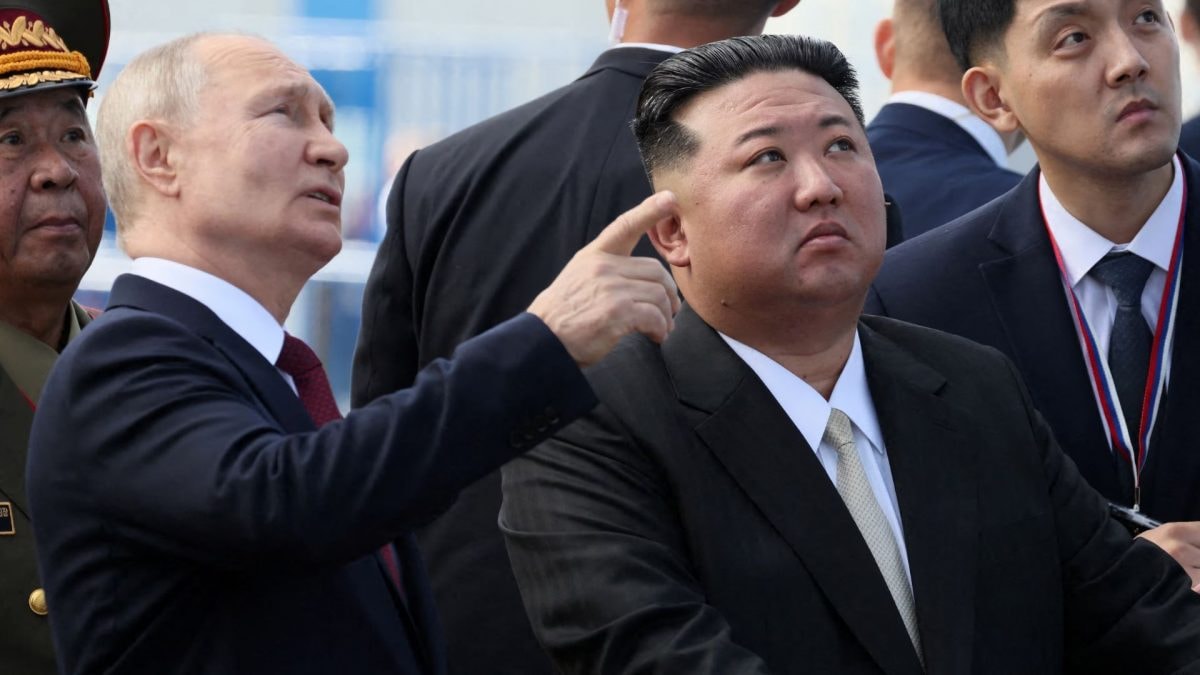The new road bridge, which has been under discussion for years, will be 850 metres (2789 ft) and link up with the Russian highway system. Its construction was agreed during a visit by President Vladimir Putin to North Korea in 2024read more
Russia has begun the construction of a direct road bridge to North Korea that will be built across the Tumen River, as the two countries forge closer ties in the face of the Ukraine war.
The bridge, which will be completed by mid-2026, is being built near an existing “Friendship Bridge”, which was commissioned following the Korean War of 1959.
At a ceremony dedicated to the start of the new bridge’s construction, Russian Prime Minister Mikhail Mishustin said it was a significant event in Russian-North Korean relations, the TASS state news agency reported.
“The significance goes far beyond just an engineering task,” Mishustin was quoted as saying. “It symbolises our common desire to strengthen friendly, good-neighbourly relations and increase inter-regional cooperation.”
How will the bridge connect the 2 countries?
The new road bridge, which has been under discussion for years, will be 850 metres (2789 ft) and link up with the Russian highway system. Its construction was agreed during a visit by President Vladimir Putin to North Korea in 2024.
Plans for the construction of the new bridge were finalised during Russian President Vladimir Putin’s visit to Pyongyang last year, where he signed an agreement on “comprehensive strategic partnership” with North Korea.
Mishustin said the bridge “will allow entrepreneurs to significantly increase transportation volumes and reduce transportation costs, ensure reliable and stable supplies of various products, which will contribute to the expansion of trade and economic cooperation.”
N.Korea hails construction of new bridge
North Korea said the construction of a new bridge linking it to Russia is a “significant” development of relations between the two countries, state media KCNA reported on Thursday.
“It provides a substantial guarantee for laying down and reinforcing… important infrastructure for economic cooperation and for vitalising bilateral cooperation including travel of persons, tourism and circulation of commodities,” KCNA said.
With inputs from agencies
